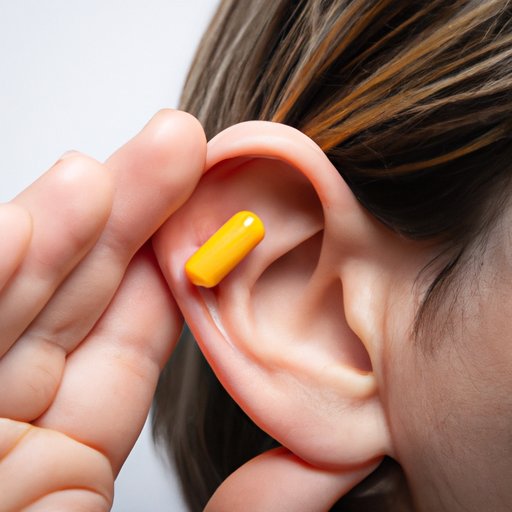
Introduction
Tinnitus, or ringing in the ears, is a common condition that affects millions of people around the world. It can be a frustrating and distracting problem that interferes with daily life activities such as hearing conversations and focusing on tasks. The good news is that there are ways to manage and reduce the symptoms of tinnitus. This article will provide tips and strategies for coping with tinnitus, including lifestyle changes, supplements and medications, alternative therapies, and hearing aids/sound therapy.
Lifestyle Changes
Firstly, it is essential to recognize that certain lifestyle factors can contribute to tinnitus and make the symptoms worse. Therefore, making some simple changes can positively impact the condition. Avoiding exposure to loud noises is among the most effective prevention measures. Protecting the ears by wearing earplugs is critical. Long-term exposure to high volumes at concerts, on a job site, or while operating loud machinery can contribute to tinnitus symptoms. Reducing caffeine and alcohol intake can also alleviate the severity of symptoms.
Supplements and Medications
Certain supplements and over-the-counter medications may help alleviate tinnitus severity to some extent. For instance, research has linked some supplements such as magnesium, B-vitamins, and zinc to manage tinnitus. Furthermore, antihistamines medications, which help reduce inflammation in the ear, can also reduce the effects of tinnitus.
Alternative Therapies
Alternative therapies exist, which aim to reduce the severity of tinnitus or help individuals cope with the symptoms. Acupuncture, hypnosis, and meditation are examples of alternative therapy that have been used for thousands of years. These therapies focus on repairing the body from the inside and aiming at the root causes of the symptom. In particular, acupuncture helps improve blood flow, while hypnosis and meditation can relax the mind and reduce the tinnitus sound’s volume through the production of relaxing endorphins.
Hearing Aids and Sound Therapy
Tinnitus can be improved through the use of hearing aids or sound therapy devices. White noise machines provide a constant background sound that masks tinnitus, distracting the brain from the irritating symptoms. Sound therapy aims at retraining the brain to ignore the ringing sound over time. The therapy’s goal is to reduce a person’s perception of the sound until it no longer has a substantial impact on daily life. People should note that hearing aids and sound therapy are not ways of curing tinnitus, but they are suitable ways for coping with the condition.
Seeking Medical Attention
If lifestyle, supplements and medications, alternative therapies, or sound therapy do not work, seeking help from a professional audiologist and ENT doctor is essential. After diagnosis, the underlying cause of the tinnitus may be addressed. Some of the conditions that may be responsible for tinnitus include infections, blockages, or damage to the eardrum or cochlea. Also, it may arise due to head trauma or certain medications, which require specialized treatment for healing.
Conclusion
Living with tinnitus is treacherous and can disrupt daily activities. However, people can manage tinnitus symptoms by making lifestyle changes, using supplements and medications, alternative therapies, or hearing aids/sound therapy. While there is no cure for tinnitus, people can limit the effects of tinnitus through the above-discussed strategies. Seeking professional help is also essential for addressing underlying medical conditions that may be affecting the condition. Managing tinnitus can take time, but with perseverance and the right tools, people can lead productive lives with reduced ringing in their ears.





